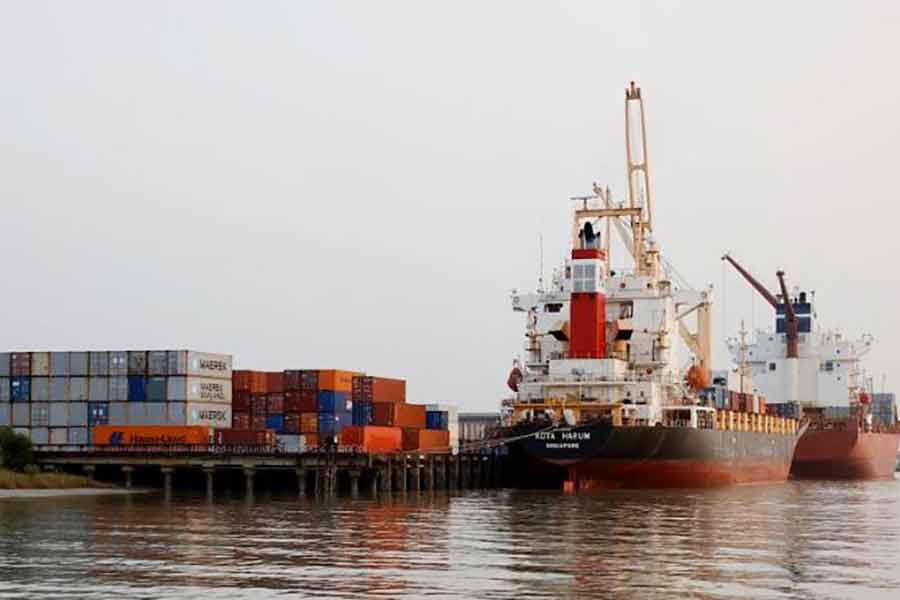
Published :
Updated :

The fall in the volumes of the country's imports and exports has affected the operation of feeder vessels between Chattogram, Colombo and Singapore as well as other ports of call. Since the second half of 2022 began the decline in the number of container feeder vessels operating through the Chittagong port, shipping agents told the media. As the fall in the number of container ships carrying imported cargo calling at the Chittagong port continued, some feeder vessels owned by foreign shipping lines discontinued their operation.
Reports have it that compared to the number of containers (close to 231,000 TEUs) that moved through the Chittagong port in July last year, it dropped to around 168,000 TEUs in February this year. That, in other words, is equivalent to a decline in container movement through Chittagong port by more than 27 per cent. Understandably, the depreciation of taka against US$ and the shrinking foreign exchange reserve due mainly to a fall in the amount of incoming remittance have led the government to adopt belt-tightening measures which have reduced the volume of imports. The fall in the global aggregate demand due to the economic slowdown triggered by the Ukraine war, on the other hand, has affected Bangladesh's exports negatively. Both developments have impacted the container feeder service to and from Bangladesh unfavourably.
However, that is not the sole reason behind some foreign container operators' pulling out their feeder vessels from operating at the Chittagong port. To be specific, the provision of obtaining a waiver certificate from the Mercantile Marine Department (MMD) under the Ministry of Shipping by the foreign-owned feeder vessel operators has further complicated the matter. In fact, before loading both inbound and outbound cargoes to and from Bangladesh, the foreign feeder vessel operators are required to obtain the waiver certificate. The process is rather tardy. There is also the risk that the foreign feeder operators may not finally be able to secure the waiver certificate they applied for. Even worse, they may have to pay a penalty for any waiver-related issue. Mention may be made here of a foreign container vessel named MV Kanway Fortune, which stopped its operation at Chittagong port following its penalisation over a waiver certification-related problem.
Notably, obtaining a waiver certificate by a foreign container vessel requires that its operator provides detailed information about the exporter, importer, the mode of its shipment (of cargoes), the vessel's name, etc. Small wonder that the waiver issues have proved costly as well as discouraging to the foreign feeder vessel operators. The provision of waiver certification was introduced in 2019 courtesy of the Bangladesh Flag Vessel (Protection) Act 2019. The objective of the Act was to promote locally- owned-container vessels so they might carry 50 per cent of all the seaborne cargoes passing through the country's ports. Currently, fewer than 86 container feeder vessels ply the routes connecting Chittagong port with Sri Lanka and Singapore. Whereas, even in January this year, their number was 94.
Considering that more than 90 per cent of Bangladesh's external trade is seaborne and that the lion's share of the cargoes for export and import is transported using container vessels owned by foreign companies, the development is concerning. Granted that some of the issues affecting the country's overall import and export are beyond the government's control. But it can at least take measures to ease the waiver-certification procedure. This will encourage foreign feeder operators to continue their service via Chittagong port.


 For all latest news, follow The Financial Express Google News channel.
For all latest news, follow The Financial Express Google News channel.